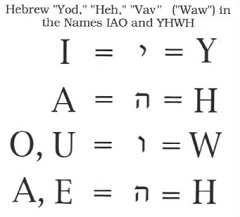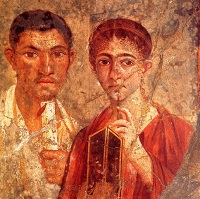EDITORIAL ESSAY
The Current Condition of Humanity
For a number of years, a continuing thread of inquiry in this space has been the connection between human solidarity, ecological sustainability, and issues of religion and spirituality. Specifically, the symbiosis of secular and religious patriarchy creates a deep-seated culture of domination and control -- of women by men, of nature by humans, of the governed by those in governance in both secular and religious institutions. The resignation of Pope Benedict XVI, and the consequent need to elect a new pope by those who will do so, provide an opportunity to bring this thread into focus.
It is estimated that 80% of people currently alive believe in God and profess a religion. That would be 80% of 7 billion, or 5.6 billion. Of those, 1.2 billion are Roman Catholic, a respectable 20%. While all the major religions of the world are staunchly patriarchal, it would not seem reasonable to assume that they all will overcome patriarchy in the same way. Therefore, this essay explores the possibilities within the boundaries of the Roman Catholic world, hoping that the exploration can be subsequently expanded to consider the specific circumstances of other religious traditions.
Feminism, and the emergence of women as full partners with men in building the entire community of creation, is a "sign of the times." Since nothing human is 100% pure (neither 100% good nor 100% bad) it must be recognized that not everything in the feminist movement can be assumed to be for the glory of God and the good of people. Surely, any form of "revanchism" that seeks to replace old "machismo" by simply reversing the order of victims and victimizers of gender violence in any of its forms is not a very appealing proposition. Humanity, both men and women, must work together to outgrow patriarchy.
A sensible feminism of solidarity with men and nature, if reciprocated by a sensible masculinism of solidarity with women and nature, sounds more appealing as the best path to follow in the transition to sustainability -- a transition that, given the absurdity of seeking infinite growth in a finite planet, will come to pass whether we like or not, with pain and suffering increasing in inverse proportion to the lack of collaboration and solidarity between the feminine and masculine members of the human race. This particular "sign of the times" is very clear: there is no way in the world that a sustainable civilization can be achieved by 50% of human beings trying to dominate, physically or psychologically, the other 50%.

Construction of the word "YHWH"
Source:
A Gender Neutral God/ess, Jennifer J. McKenzie, August 2012
IMAGE USED WITH PERMISSION
This table explains the composition of the
word JHWH, the Hebrew name for God,
intended to be inclusive
masculine/feminine/neuter
albeit not to be made into images as in pre-biblical pagan cultures.
|

A fragment of Daniel 2:20
from the "Biblia Hebraica Stuttgartensia"
Source: Jennifer J. McKenzie, Personal Communication, 14 February 2013
USED WITH PERMISSION
This example is explained in Note 154 of her book, A Gender Neutral God/ess, August 2012.
The upper dash symbol under the red arrow is called a Maqqeph, It serves to consolidate two words as one. The above joined Hebrew words are HIM-HER and signify inclusiveness. In this verse, Daniel 2:20, they are used with the word Elah. Elah is a Hebrew word used for the Deity who today is called God.
An English translation of Daniel 2:20 can be: "Daniel said: Blessed is Elah's name for ever and ever for to Him-Her belong wisdom and might."
| |
Patriarchal Scaffolding of Biblical Texts
There can be no doubt that religion, and organized religion in particular, plays a pivotal role in perpetuating the patriarchal mindset of domination and control that is the root cause of the world's current social and ecological predicament. Exclusively masculine
images of God. Exclusively masculine church hierarchies. Exclusively masculine liturgical language. Exclusively masculine, or at the very least male-biased, translations of biblical texts in which the original intent of the writers has been gradually edited to minimize, and sometimes arbitrarily exclude, any reference to the divine feminine. The entire biblical corpus, and the divine revelation contained therein, is thereby imprisoned in a patriarchal scaffolding that, effectively speaking, supports phallocentric interpretations of the Bible and obscures the gender balance that the sacred texts originally intended.
Modern exegetical scholarship is coming to the rescue. Scholars are taking a fresh look at some of the most ancient manuscripts, and finding new insights that may facilitate a graceful crumbling of rigid, patriarchally literalist interpretations. If the graceful crumbling is resisted, it may become disgraceful, but it is already happening and in ways that are increasingly accessible to the general public. Works are being written in plain language, relegating the analysis of ancient scripts to footnotes (or at least indented clarifications) while plainly explaining the historical, culturally biased transliteration processes which gradually excluded feminine expressions from most of the modern biblical translations.
A case in point is the recent publication of this e-book, conveniently available as a kindle edition:
A Gender Neutral God/ess: Be Inclusive but MAKE NO IMAGES was the Religious Change, J. J. McKenzie, Amazon Digital Services, August 2012
Readers of this journal know that it has always been free of commercials, and this is not intended to be the first one. This is a cordial invitation for concerned global citizens who are believers (in the Judeo-Christian tradition and otherwise) to get an education on how the gender balance that is intrinsic to humanity as
imago Dei has been edited out of the Bible over the past 2500 years or so. It is also an invitation for competent biblical scholars to make time to review it and provide constructive criticism, as the author is open to comments and corrections. One appealing feature of this work is that it makes no accusation of intentional sexism. No fingers are pointed to scribes and translators, or even biblical scholars of past centuries. However, that which is shown to be objectively sexist, and contrary to the original intent of biblical authors, must be recognized as such, and sooner rather than later. There is no "radical feminist agenda" behind this book. Therefore, it is hoped that religious authorities, and especially ecclesiastical authorities in Catholic and other Christian churches, will take a look at this book, and the referenced literature, with an open mind and a willingness to let go of absurd rationalizations of practices and doctrines that have been manufactured by all-to-human patriarchal hands over the centuries and now constitute an obstacle to social solidarity, ecological sustainability, and integral human development.
WHY IS IT THAT THE NEXT POPE CANNOT BE A WOMAN?
Before a sensible response to this question is offered, some clarifications are in order:
God is not the problem - God is Love. God is both our Father and our Mother, and abides "in unapproachable light." While the word "God" is masculine, the fact that it is has become standard terminology should not be used as a pretext to think of God as exclusively masculine. God is not subject to the limitations of human language and human categories.
Jesus Christ is not the problem - Christ gave the church full authority (the "power of the keys," Matthew 16:19, 18:18) to make all decisions required to foster the mission of evangelization. Acts 15 is a model for the process to be used to make such decisions. To say that the church is not authorized to ordain women to the priesthood is a cop out, plain and simple.
The Bible is not the problem - The Bible is a theological reflection of God acting in human history. Even after many centuries of male-biased editing and translating, plenty of references to the divine feminine remain in the Old and New Testaments. Newly emerging scholarship is showing that the most ancient Hebrew texts refer to God as Him-Her.
The Creed is not the problem - The Christian creed professes belief in "one God, the Father almighty ..." Are we to infer from this that the First Person of the Trinity is exclusively male? God is Father, Son, and Holy Spirit, meaning Creator, Redeemer, and Sanctifier. The "Son" becoming flesh as a male confirms that all human limitations, including gender, were embraced at the incarnation. The concrete totality of human nature was assumed, not only the masculine half.
PATRIARCHY IS THE PROBLEM - Indeed, patriarchy is the problem. It was a problem for Jesus, who challenged his culture only to the extent that his disciples could absorb (John 16:12). It is a problem for the church when his words and actions are taken in a literalist manner. Would Jesus, in this day and age, select 12 males to represent the patriarchs of the 12 tribes of Israel? It is a problem for Christians when beautiful allegories, such as the nuptial covenant between Christ and the Church, are frozen in time and absolutized as if the allegory could exhaust the mystery (Ephesians 5:32). Indeed, patriarchy is a problem for all humanity, and for the entire community of creation, when it freezes entire religious and ethical systems into the mentality of domination and control that condoned the burning of heretics at the stake and the extermination of entire nations during the colonization of the Americas. This is the same kind of mentality that until not that long ago "tolerated" slavery as not being intrinsically evil, failed to officially state that women are as fully human as men, and now keeps fueling the destruction of the human habitat in order to sustain, among other things, extravagant displays of religious pomp and circumstance in the name of one who was born in poverty and obscurity, never had a comfortable place to live, and was crucified by the Romans for "disturbing the peace," i.e., challenging the hypocrisy and the hegemony of the patriarchal religious establishment of his time.

Rublev's "Trinity" (ca. 1411 CE)
Tretyakov Gallery, Moscow
Source: Wikipedia
|

"Rome and Germania" (1997)
Archeology Research Center
Source: Universität Osnabrück
|
PRAYER, STUDY, AND ACTION
Needless to say, we should have no false hopes that the election of a new pope will be a quick catalyst for the Roman Catholic Church to overcome patriarchy. However, for those of us who still believe in miracles, cynical despair is not a sensible alternative.
PRAYER - Let us pray for a new pope that will be sensitive to the current condition of humanity and the human habitat. Let us pray for renewed Christian churches that will spend themselves in proclaiming the gospel rather than retreating into castles to defend superficial practices and doctrines that no longer serve the glory of God and the good of people. Let us pray for authentic dialogue between Christians, and between Christians and all people of good will, to find new ways to foster a nonviolent transition from patriarchal consumerism to solidarity and sustainability.
STUDY - Let us forge ahead with the hard but indispensable work of extracting, from the most ancient sources of religious wisdom, many jewels that still remain hidden by the limitations of human language and imprisoned by centuries of fundamentalist patriarchal interpretations that have nothing whatsoever to do with divine revelation or the intent of the sacred authors. This applies not only to the Bible, but to original sources in all religious traditions. How much longer can we afford to remain attached to absurdities such as "the Bible is inerrant" and "we already have the whole truth"?
ACTION - Words are cheap unless backed up by actions. Words are cheaper today than ever before. Modern information technology enables us to write, print, and electronically disseminate millions of pages full of words in a tragicomic worldwide display of GIGO (Garbage In-Garbage Out). This journal may well be part of the garbage. But actions speak louder than words, much louder. We need to take action in reforming consumerist lifestyles. We need to take action in reforming social and religious institutions that have been accumulating too much dust for too many centuries. In particular, we need to take action to dismantle institutionalized patriarchy and foster gender balance in all dimensions of human life. It is time to put an end to scapegoating behavior. It is time to stop pointing fingers to avoid responsibility and start acting for the common good of the entire community of creation!
The articles and supplements (listed below, with links) provide some concrete suggestions for prayer, study, and action. The pope is an important player in world affairs, but there is plenty of praying, studying, and acting to do for each and every one of us. We are going to get another "Holy Father." At this point in human history, we really need a "Holy Mother." But we would do well to avoid indulging in gender stereotypes, keeping in mind that the next man dressed in white will not be a Roman emperor but a disciple of He who referred to himself as a hen who "gathers her chicks under her wings" (Matthew 23:37, Luke 13:34).